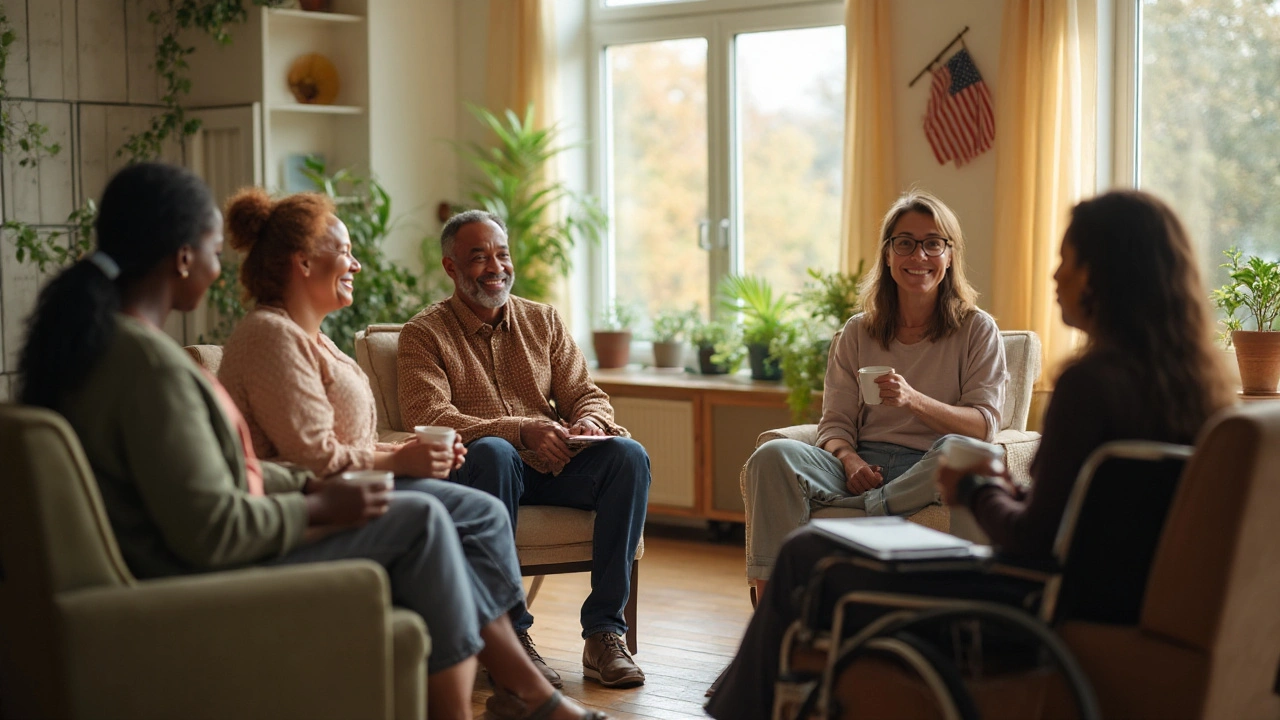Support Groups for Depression – How to Find, Join, and Thrive
Feeling stuck in a dark mood can make you think you’re alone, but support groups prove otherwise. They bring people who understand what you’re going through, and that shared experience can lift the weight of depression fast. Below you’ll get straight‑forward steps to locate a group that fits your needs, whether you prefer face‑to‑face meetings or a virtual hangout.
Why Support Groups Matter
First off, talking to strangers who have lived through similar lows cuts down the shame that often blocks help‑seeking. In a group, you can hear real stories, pick up coping tricks, and see that recovery isn’t a solo mission. Studies show that regular attendance can lower depressive scores by up to 30%, mainly because you get accountability and a built‑in encouragement network. You also learn how to navigate daily triggers, manage medication side effects, and set realistic goals without feeling judged.
Where to Find the Right Group
Start with your doctor or therapist—they usually have a list of reputable local groups. Public libraries, community centers, and religious groups often host free meetings, too. If you’re comfortable online, look for platforms like Meetup, HealthUnlocked, or specialized forums such as 7 Cups. Search terms like “depression support group near me” or “online depression peer group” on Google, and check the first three results for reviews and safety info.
When you spot a potential group, ask these quick questions: Who runs the meeting? Is it led by a professional or a trained peer? How often does it meet, and what is the format (open discussion, structured topics, or activities)? Most groups have a brief intro session—use it to gauge comfort level. If the vibe feels right, commit to at least three meetings; the first one can feel awkward, but consistency builds trust.
Don’t overlook niche groups that match your specific situation. There are chats for young adults, veterans, parents, and people dealing with co‑existing anxiety or bipolar disorder. Joining a niche group can make conversations more relevant and the advice you get more actionable. Remember, it’s okay to try a few groups before you land on the one that clicks.
Finally, protect your privacy. Use a pseudonym if you’re uneasy sharing your real name, especially in online settings. Make sure the group has clear rules about confidentiality and that the platform encrypts data. If anything feels off—spammy emails, pressure to buy products, or invasive questions—walk away and report it.
Support groups aren’t a cure‑all, but they’re a powerful piece of the recovery puzzle. By connecting with others, you get practical tips, emotional lift, and a reminder that you’re not alone. Take one of the steps above today, and you’ll be on your way to a sturdier, more hopeful path forward.
24 September 2025
Tessa Marley
Discover how support groups empower those battling depression, offering validation, coping skills, social connection, and relapse prevention in both in‑person and online formats.
Continue Reading...






